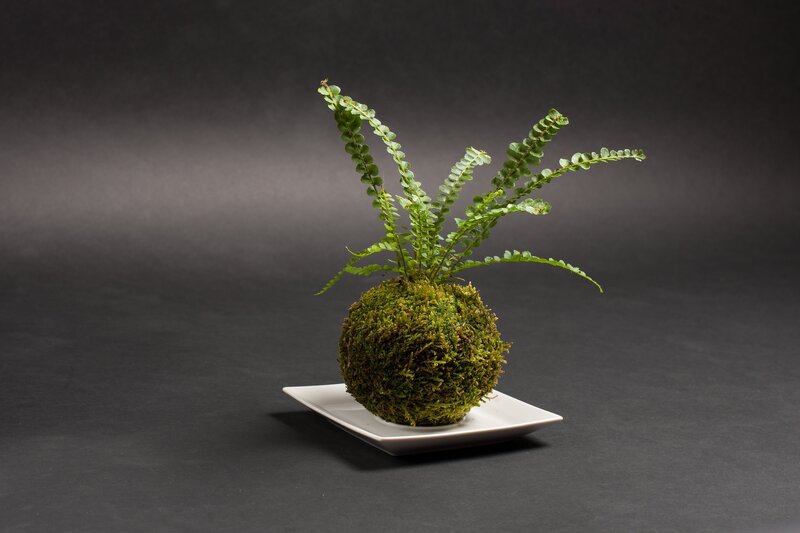Secrets to Successful Herb Gardening Revealed
Posted on 07/09/2025
Secrets to Successful Herb Gardening Revealed
Are you searching for the secrets to successful herb gardening? Whether you're a seasoned gardener or a curious beginner, cultivating your own herb garden offers a wealth of rewards. Herbs are not only flavorful and fragrant but also possess medicinal and aesthetic value. This comprehensive guide will reveal time-tested strategies and innovative tricks for creating a thriving herb haven. Unlock the magic of professional herb cultivation in your own backyard or windowsill!

Why Grow Your Own Herbs?
Let's start with why herb gardening is such a game-changer. Fresh herbs elevate meals, enliven drinks, heal ailments, and support pollinators. Gardening itself is an empowering, sustainable hobby that benefits your wellness and your wallet. Below are just a few remarkable advantages of nurturing your own herbs:
- Unmatched freshness and flavor compared to store-bought herbs
- Potential for year-round harvesting with the right techniques
- Eco-friendly, pesticide-free cooking ingredients
- Beautiful, aromatic addition to gardens, patios, or interiors
- Holistic remedies and teas at your fingertips
Understanding Essential Herb Gardening Types
Before you sow your first seed or buy your first plant, it's important to know the varieties of herb gardens you can create. The secrets to successful herb gardening differ slightly depending on your chosen style.
1. Outdoor Herb Gardens
Classic and versatile, an outdoor garden can be grown in the ground or raised beds. Outdoor spaces allow for greater selection and growth.
2. Container Herb Gardens
Short on space? Pots, window boxes, or even recycled containers can host thriving herbs on patios, balconies, or just outside your kitchen door.
3. Indoor Herb Gardens
With the right light, many herbs grow successfully indoors on sunny windowsills, in hydroponic systems, or under grow lights. This style is perfect for consistent access to fresh herbs all year long.
Choosing the Perfect Herbs for Your Garden
A vital part of a flourishing herb garden is selecting the right plants for your climate, location, and needs. Consider these tips when making your choices:
- Match herbs to your climate and zone. Some, like basil, thrive in heat, while parsley and chives prefer cooler temperatures.
- Choose herbs you regularly use in cooking or teas. Popular choices include basil, thyme, mint, parsley, rosemary, oregano, chives, and cilantro.
- For beginners, opt for easy-to-grow herbs such as mint (in containers!), chives, and basil.
- Research medicinal herbs like lavender, echinacea, or chamomile for added health benefits.
- Don't overlook less common but rewarding options, like lemon balm, tarragon, or sorrel.
Secrets to Planting and Positioning Herbs
Sunlight: A Non-Negotiable Key
Most herbs need a minimum of 6-8 hours of sunlight each day. Find a spot in your garden or on your windowsill that bathes plants in abundant light. If growing indoors, south-facing windows are ideal. Supplement with grow lights if needed.
Soil Secrets for Healthy Herbs
Your herbs' success hinges on proper soil preparation. Follow these proven steps:
- Use well-draining soil. Herbs dislike soggy roots. Lighten heavy soil by adding sand or fine gravel.
- Mix in organic compost or worm castings to boost nutrients and moisture retention.
- For container gardens, use specialized potting mix labeled for herbs or vegetables.
- Test soil pH if possible. Most herbs thrive in a neutral to slightly alkaline pH (6.0-7.5).
The Importance of Spacing and Companion Planting
Don't overcrowd your herbs! Leave enough room for air circulation, mature size, and easy harvesting. Group herbs with similar watering and sunlight needs together for optimal growth.
Also, consider companion planting--some herbs naturally deter pests or enhance each other's flavors. For example, basil planted with tomatoes can improve both crops.
Watering Wisdom: Less is Often More
One of the closely held secrets to successful herb gardening is mastering hydration. Herbs generally dislike overwatering. Follow these golden rules:
- Check soil moisture with your finger; water only when the top inch feels dry.
- Use watering cans with narrow spouts for targeted hydration.
- Water early in the day to prevent disease and evaporation.
- For containers, ensure pots have drainage holes to avoid root rot.
- Mulch around outdoor herbs to conserve moisture and regulate soil temperature.
Pro tip: Mediterranean herbs such as rosemary, lavender, and thyme are especially drought-tolerant and should never sit in wet soil.
Feeding and Fertilizing Your Herb Garden
While herbs are generally low feeders, a gentle approach to fertilizing ensures long-term productivity.
- Use a balanced, organic fertilizer (such as fish emulsion or compost tea) every 4-6 weeks during the growing season.
- An occasional dose of epsom salts (magnesium sulfate) can encourage lush, green growth.
- Go light--over-fertilizing can diminish flavors and produce leggy growth.
Pest and Disease Management: Natural & Effective Methods
A little vigilance goes a long way in herb gardening. Here are proven defenses against common problems:
- Inspect plants regularly for pests like aphids or spider mites; remove by hand or with a gentle soap spray.
- Plant herbs that deter pests, such as chives, mint, or basil, alongside more vulnerable crops.
- Encourage beneficial insects such as ladybugs and lacewings.
- Avoid overhead watering to reduce fungal issues.
- Rotate crops each year to minimize disease buildup.
Harvesting Secrets for Flavor and Productivity
The way you harvest your herbs can actually improve their growth. Follow these expert secrets:
- Begin harvesting once plants are established, but before they flower for maximum flavor.
- Use sharp scissors or pruners to snip, rather than tearing stems.
- Regular harvesting encourages bushier, more productive plants.
- Never remove more than one-third of the plant at once.
- Harvest in the morning when essential oils are most concentrated.
Preserving Your Abundant Herbal Harvest
Enjoy your herbs all year long by preserving them! Try these simple, time-honored techniques:
- Drying: Hang bunches upside-down in a cool, dry spot, or use a dehydrator.
- Freezing: Chop and freeze herbs in ice cube trays with water or olive oil.
- Infuse herbs in oils or vinegars for a gourmet touch to your kitchen.
- Mix into homemade pestos, butters, or teas for easy, flavorful additions to meals.
Secret Tips for Year-Round Herb Gardening
Why limit fresh herbs to summer? With a few secret strategies, you can enjoy vibrant leaves even in the dead of winter.
- Move container herbs indoors as autumn cools. South-facing windowsills or LED grow lights mimic sunlight.
- Try hydroponics or mason jar regrowth for soil-free indoor gardens.
- Choose hardy perennials like sage or thyme, which often overwinter outdoors in milder climates.
- Use cold frames or mini greenhouses for outdoor winter protection.
Common Herb Gardening Mistakes & How to Avoid Them
Below are mistakes even experienced gardeners make--and the secrets to overcoming them:
- Overwatering: Always check soil moisture first.
- Poor lighting: Supplement with grow lights indoors.
- Crowding: Space plants for air flow and access.
- Harvesting too soon or too aggressively: Be patient and gentle.
- Ignoring specific needs: Research each herb's care requirements.
Advanced Secrets for Professional-Quality Herb Gardens
- Pinch back growing tips to promote branching in basil and mint.
- Successive sowing: Plant new seeds every few weeks for a continuous supply.
- Rotate containers for even sun exposure indoors.
- Interplant flowering herbs to attract pollinators and beneficial insects.
- Experiment with unique varieties--purple basil, bronze fennel, or pineapple sage add visual and culinary flair.
- Log your successes and failures for each season in a gardening journal.
The Best Herb Gardening Tools for Success
Quality tools make successful herb gardening easier and more enjoyable. Here's what you need:
- Sturdy hand trowel and fork
- Pruning shears or sharp scissors
- Watering can with a narrow spout
- Labels or markers to identify herbs
- Pots with drainage for container gardens
- Gardening gloves to protect hands

Frequently Asked Questions About Successful Herb Gardening
How often should I water herbs?
It depends on the type of herb and climate, but generally, water when the top inch of soil feels dry to the touch.
Which herbs are easiest for beginners?
Mint, chives, parsley, and basil are among the easiest and most forgiving herbs to grow.
Why are my indoor herbs leggy?
Insufficient sunlight is the common culprit. Move them to a brighter location or supplement with a grow light.
How do I prevent pests on my herbs?
Inspect plants regularly, wash off pests with water, and invite beneficial insects into the garden.
Conclusion: The Path to Herb Gardening Mastery
There you have it--the essential secrets to successful herb gardening revealed! With attention to light, soil, watering, and harvesting, anyone can create a lush, productive herb paradise. Start simple, choose your favorite herbs, and enjoy experimenting with new varieties and techniques. The joy of snipping fresh parsley, basil, or thyme from your own garden is truly unmatched. Now put these secrets to work, and let your home and kitchen overflow with garden-fresh flavor year-round!
Ready to grow? Share your own herb gardening triumphs and tips in the comments below!
Latest Posts
Gardening Must-Haves for the Passionate Planter
Discover Zen Garden Designs to Cultivate Peace and Tranquility Outdoors
Crafting a Playful Oasis for Kids to Discover Nature

